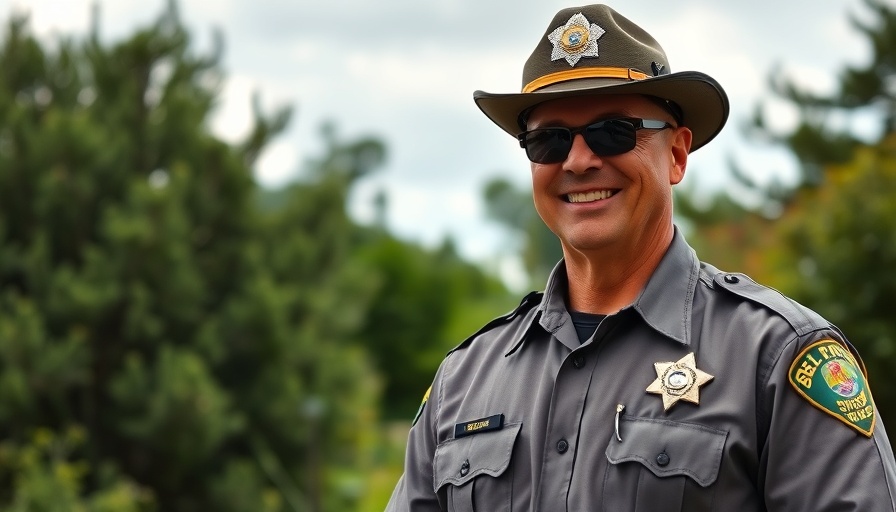
Tragic Incident Highlights Safety Concerns for Law Enforcement Training
In a tragic incident that has sent shockwaves through the law enforcement community, the family of Alfredo "Freddy" Flores, a seasoned Los Angeles County sheriff’s deputy, has filed a wrongful death lawsuit following his death in a mobile shooting range fire. This heartbreaking event, which occurred during a mandatory firearms skills test in October 2023, raises significant questions about training safety protocols and accountability within law enforcement agencies.
The Implications of Inadequate Safety Measures
The lawsuit alleges that the LASD's failure to adhere to state regulations regarding the inspection of mobile shooting trailers contributed to an unreasonably hazardous environment, ultimately leading to the explosive fire that claimed Flores’s life. Attorney John Carpenter, representing the Flores family, asserted that, "This never should have happened," emphasizing that the systemic neglect exemplifies a broader issue within policing infrastructure.
The Need for Reform in Police Training Protocols
Incidents like this not only affect the families of the victims but also reverberate through the entire policing community, calling for a review of safety protocols in police training. Training scenarios, which are meant to prepare officers for real-life threats, must themselves be devoid of unnecessary dangers. This situation underscores an urgent need for law enforcement leaders to assess and reform their training policies, especially pertaining to equipment such as mobile shooting ranges. Ensuring safe and compliant environments should be a priority in a profession dedicated to public safety.
Public Reaction and Community Engagement
The reaction from the community and fellow law enforcement professionals has been one of mourning and a call to action. Los Angeles County Supervisor Janice Hahn expressed her condolences, framing Flores’s death as a tremendous loss not only for his family but for the community he served diligently for over two decades. This highlights the critical relationship that police departments need to foster with their communities—a relationship built on trust, safety, and accountability.
Comparative Analysis: Local vs. National Standards in Police Training
While Flores’s tragic demise brings attention to a local issue within the LASD, it invites a broader conversation about national training standards. Many police departments across the United States struggle with similar issues related to outdated equipment and inadequate safety measures, which can compromise officer safety. A comparative analysis demonstrates that while some departments are actively pursuing reform and technological advancements in police training, others still lag behind, risking the lives of those charged with protecting us.
Potential Outcomes and Next Steps for the Los Angeles Sheriff's Department
The suit seeks to prevent the Sheriff’s Department from utilizing mobile shooting ranges until they can guarantee no risk to their officers. If the courts find in favor of the Flores family, it could set a precedent for better safety checks across all training facilities. Furthermore, it underscores the importance of stringent oversight in law enforcement practices, particularly concerning officer wellness and safety protocols.
Conclusion: Advocating for Police Transparency and Reform
As the Flores family navigates their grief and seeks justice, this case highlights the pressing need for transparency and accountability within police departments. It challenges law enforcement leaders to reevaluate their commitment to officer safety and community relations. Ultimately, here is an opportunity for systemic change that could benefit future generations of law enforcement professionals. For community members and advocates, it is essential to stay engaged and informed about these issues as we move forward together.
By understanding the implications of this tragic event and advocating for necessary reforms, we can create a safer environment for officers and communities alike. Let's prioritize the mental and physical well-being of our law enforcement professionals. Connecting with local advocacy groups or law enforcement leadership can play a vital role in this community-wide effort towards safer policing practices.
 Add Row
Add Row  Add
Add 

 Add Element
Add Element 




Write A Comment